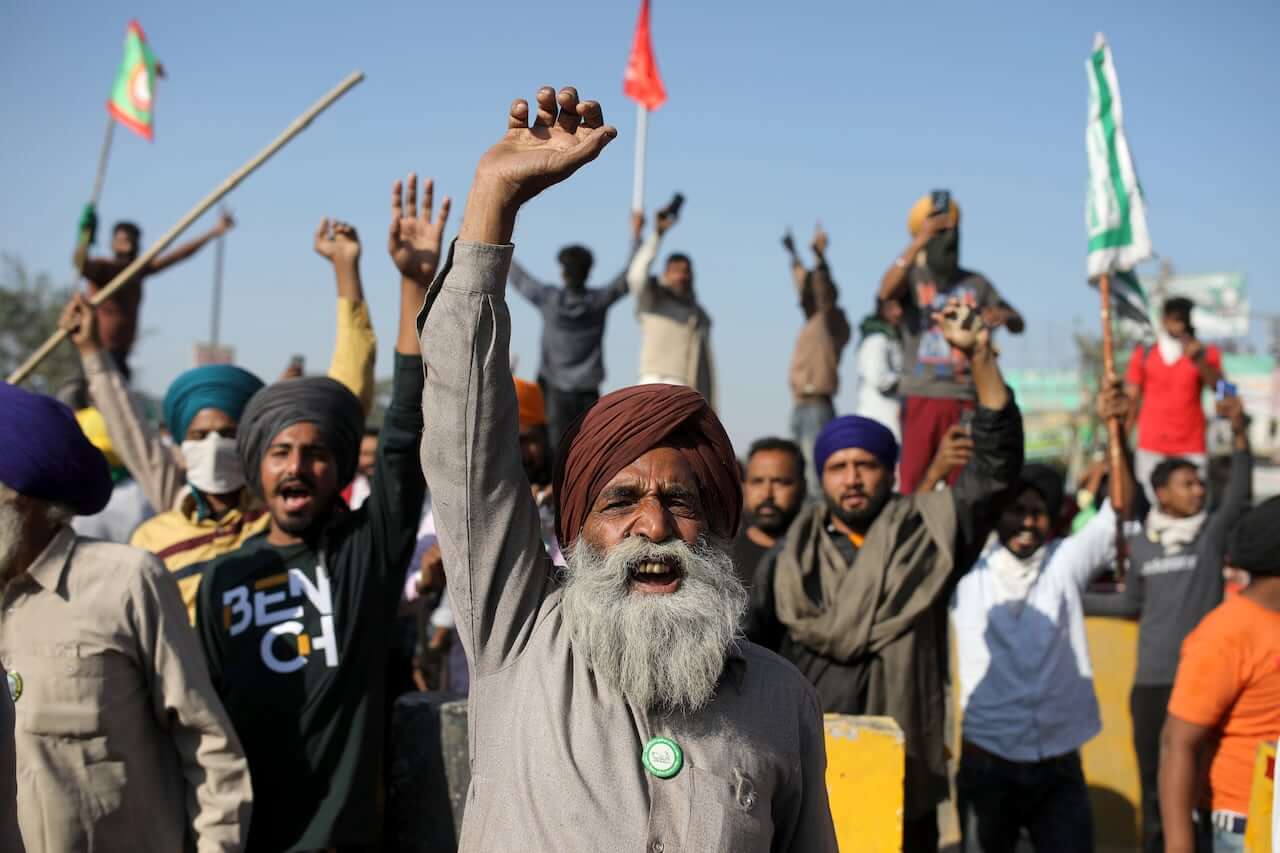The Indian Central government has decided to hold talks with the farmers that have assembled in New Delhi at Vigyan Bhawan at 3 PM. The negotiations have been preponed by three days as the protests continue to intensify. Indian Defence Minister Rajnath Singh will be representing the Indian government in the discussion. The decision to expedite the negotiations was made following a meeting between Home Minister Amit Shah and Agricultural Minister Narendra Singh.
Earlier, the central government had agreed to negotiate with the protestors. However, the farmers refused this suggestion as it was contingent on them changing the venue of the protest. However, citing weather and the COVID-19 situation, Union Minister Narendra Tomar decided to prepone the talks and lifted any preconditions for the discussion. Leaders of the protestors have agreed to “positively” consider the proposal. However, they have reiterated that the demand for repealing the recently imposed agricultural reforms was “non-negotiable.” Yogendra Yadav, one of the main leaders of the protests, said,” We have not closed our doors for discussions. The talks should be without any condition, sincere, and inclusive. We are not interested in going left or right, we are saying ‘repeal these laws.’ At least, the government should make clear that it will rethink the laws.” However, leaders of the ruling Bhartiya Janata Party continue to maintain that the farmers are being misled by the opposition parties.
The agricultural reform bills in question—The Farmers’ Produce Trade And Commerce (Promotion And Facilitation) Bill, The Farmers (Empowerment and Protection) Agreement on Price Assurance and Farm Services Bill, and The Essential Commodities (Amendment) Bill—have been criticised for being too liberalized and for assuming that the current structure is devoid of private entities. Farmers fear that changes to the crucial minimum support price clause, doubled with the ease of business for corporate entities, will complicate their lives as they already struggle to sell goods. Further, the laws have been slammed for being opaque and providing no redressal mechanisms or sureties to farmers, with the government essentially stepping back from its role as a guarantor in a free market system.
The ongoing protests have also managed to garner support from several western leaders. On the occasion of Gurupurab, Canadian Prime Minister Justin Trudeau said, “I would be remiss if I didn’t start by recognising the news coming from India about the protest by farmers. The situation is concerning. We are all very worried about family and friends. We know that’s a reality for many of you. Let me remind you, Canada will always be there to defend the rights of peaceful protesters. We believe in the process of dialogue. We’ve reached out through multiple means to the Indian authorities to highlight our concerns. This is a moment for all of us to pull together.” Similarly, several members of parliament from the United Kingdom and political leaders from the United States have also expressed their support for the farmers’ right to protest too.
Indian Government Struggles to Contain Farmers Protests
With the protests against the recent farm bills intensifying, the Indian government agreed to hold talks.
December 1, 2020

SOURCE: ASSOCIATED PRESS
